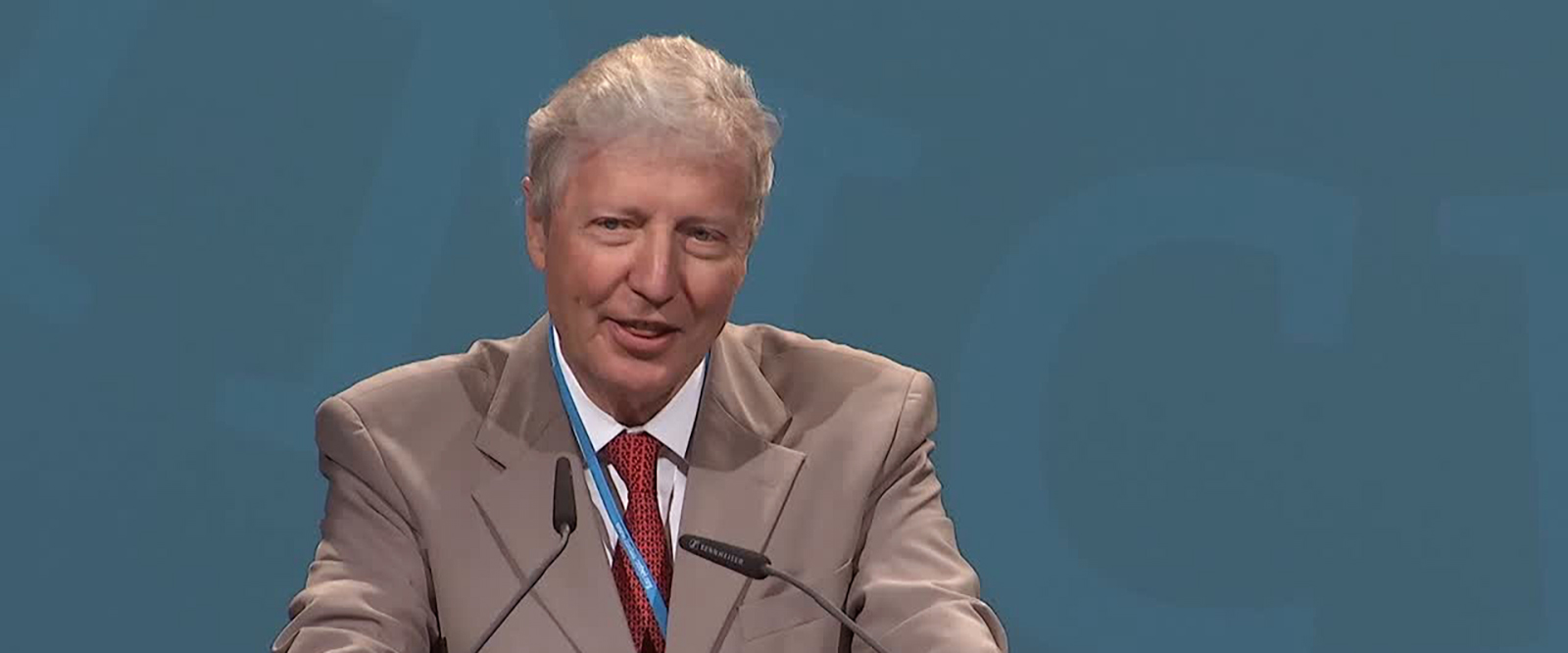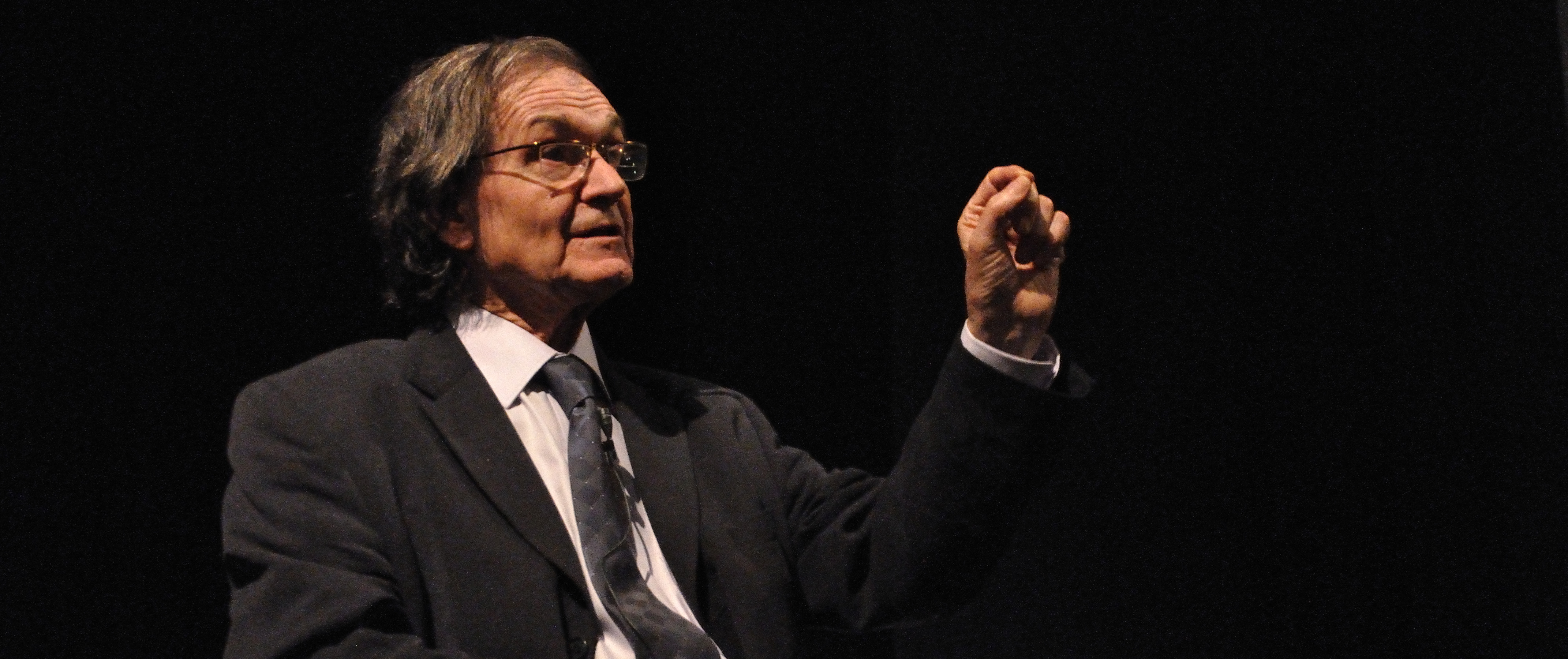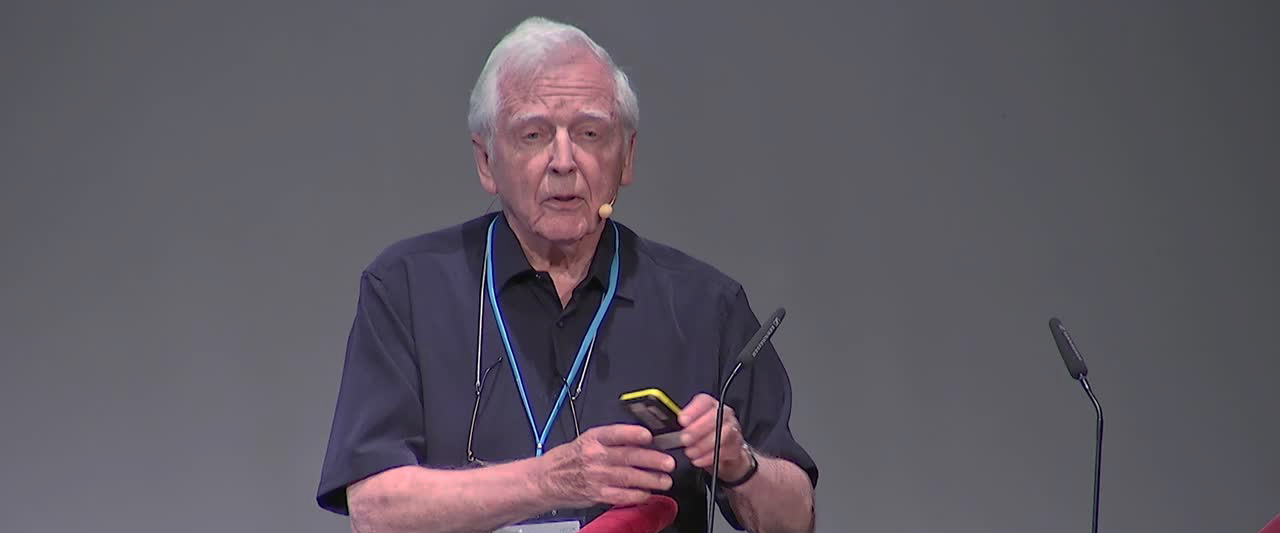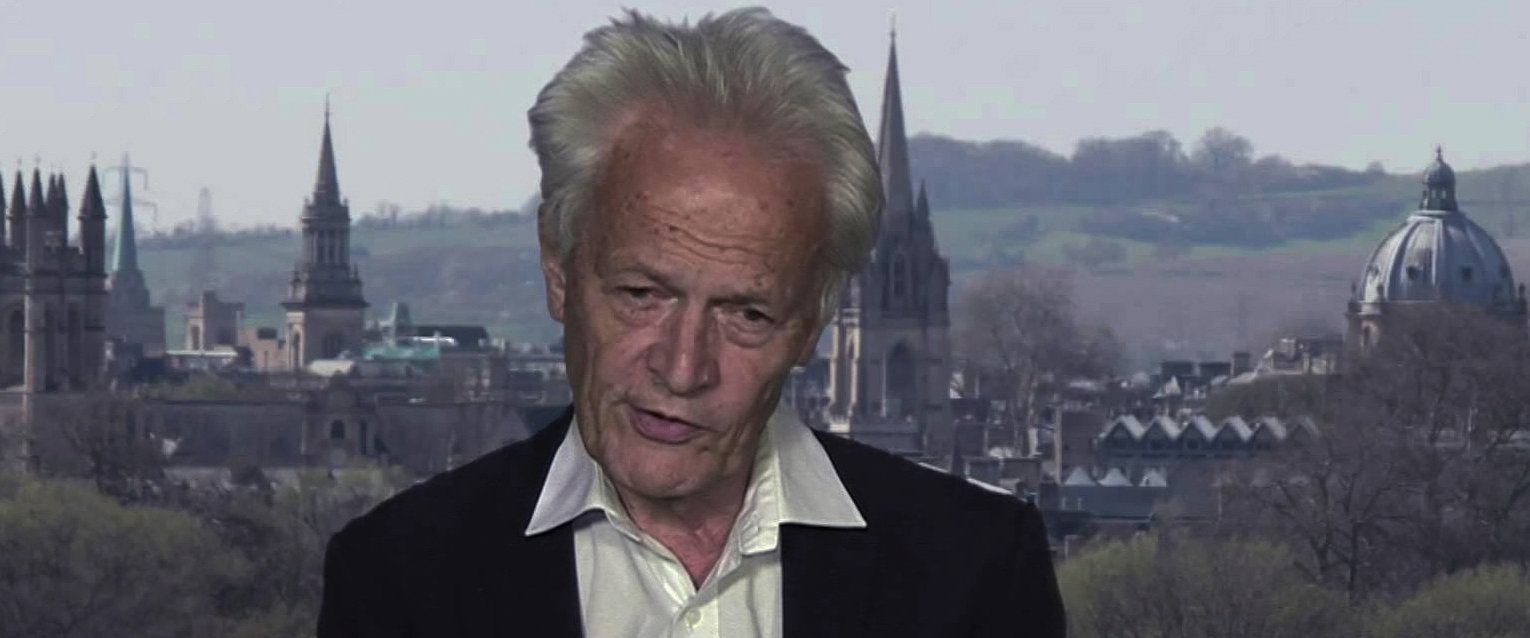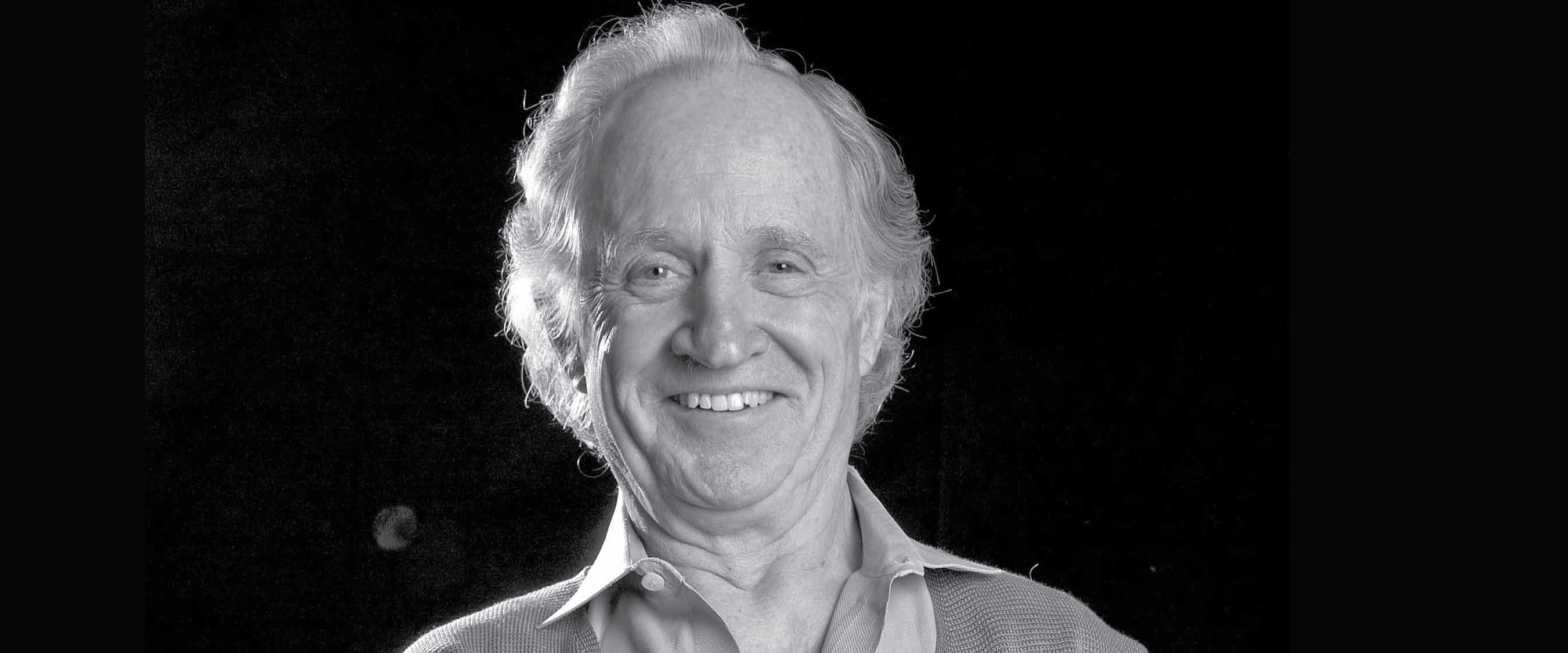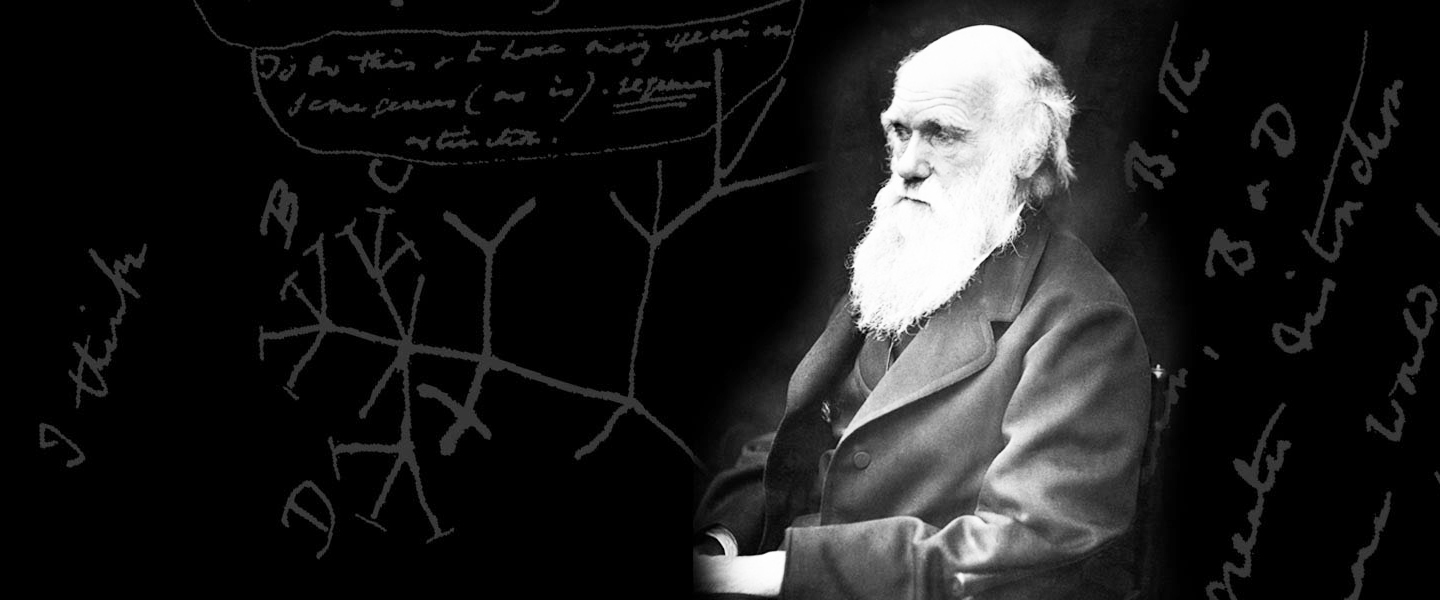Carl E Wieman, a Nobel laureate in Physics from Stanford University will give the fifth seminar of the College series on Access to Education onlinehis contributions to in the College Lecture Theatre at 6.00 pm on tthe 3rd of May. Carl E Wieman, known for this contributions to the discovery of Einstein-Bose condensates, has argued for years that current approaches to the teaching of science subjects are ineffective and has offered new and radical approaches to this important topic. The majority of Volta undergraduate and postgraduate students are engaged in science studies and alll members of the College are warmly encouraged to attend Carl E Wieman's seminar.
The poster of the event is available here. The abstract of the seminar and a short biographic sketch of the speaker can be found at this page.
Image
A graphic representation of physical variables accounting generated by an Artificial Intelligence approach. Courtesy of the Department of Engineering of Columbia University.
Salvatore Piscuoglio of the University of Basel will give a seminar at 4.30 pm on Wednesday the 26th of April at the Golgi//Spallanzani Institute (via A Ferrata 9) entitle Augmenting Precision Oncology Using in Silico Tools and patient-derived 3d Models. Cancer therapy is one of the areas in which the development of personalised approaches is proving very valuable and the seminar will review progress in the field and highlight the speaker's contribution. All College students are invited to attend, in particular medical students and science students reading Biology, Biotechnology and Pharmaceutical Sciences.
The poster of the event is available here. The abstract of the seminar and a short biographic sketch of the speaker can be found at this page.
3 May 2023. Carl E Wieman, Stanford University
A scientific Approach to Science Education
On Wednesday the 3rd of May 2023 at 6.00 pm, Carl E Wieman of Stanford University will give an online seminar entitled A scientific Approach to Science Education in the College Lecture Theaatre. Carl E Wieeman, a Nobel laureate in Phyiscs for the discovery of the Einstein-Bose condensates, has been a strong advocate for the development of new and more effective ways to teach science subjects and has contributed new and radical ideas to this important topic. The poster of the seminar is available here.
_____________________________________
Abstract
Guided by experimental tests of theory and practice, science and engineering have advanced rapidly in the past 500 years. Guided primarily by tradition and dogma, education in these subjects has remained largely medieval. Recent research on how people learn, combined with careful experiments in university classrooms, is now revealing much more effective ways to teach and evaluate learning than is currently used in most classes. I will discuss these results and what they tell us about principles of learning and their effective implementation in science courses. This research is setting the stage for a new approach to teaching that can provide the relevant and effective science education for all students that is needed for the 21st century. It also shows better ways to evaluate teaching quality.
Biographical Sketch
Carl Wieman is a Professor of Physics and Education at Stanford University. Wieman has done extensive experimental research in both atomic physics (Nobel Prize in physics 2001) and university science and engineering education (Carnegie Foundation Professor of the Year 2004). He founded PhET, which provides online interactive simulations that are used 100 million times/year to learn science and recently published a book “Improving how universities teach science”. He is currently studying expertise and problem solving in science and engineering disciplines, and how this can be better measured and taught. Most recently, he is the recipient of the 2020 Yidan International Prize for Education Research.
Image
Eric Cornell and Carl Wieman in their laboratory at Joint Institute for Laboratory Astrophysic in Boulder, Colorado at the time in which they conducted their research on the Einstein-Bose condensates.
26 April 2023. Salvatore Piscuoglio, University of Basel
Augmenting precision oncology using in silico tools and patient-derived 3D models
On Wednesday the 26th of April 2023 at 4.30 pm, Salvatore Piscuoglio, of the University of Basel will give a seminar entitled Augmenting precision oncology using in silico tools and patient-derived 3D models in the Seminar Room of the Unit of Immunology and General Pathology of the Department of Medicine (in the Golgi/Spallanzani Institute in via A Ferrata 9). The seminar will describe how progress in understanding the genetic and epigenetic make-up of individual tumours may result in therapies tailored to individual patients. These 'targeted therapies' have already proved to be more effective and less toxic than traditional chemotherapy or radiation therapy employed for decades in the treatment of several types of cancer. The poster of the seminar is available here.
_____________________________________
Abstract
Human cancers are underpinned by molecular aberrations and show remarkable molecular and clinical heterogeneity. The identification of genetic aberrations that contribute to carcinogenesis and can be exploited either as diagnostic markers and/ or therapeutic targets is vital to the optimization of the clinical management of patients. Patient-derived organoids (PDOs) have been shown to retain the molecular features of the original tumors and to better resemble tumor heterogeneity than traditional two-dimensional cell culture methods derived from single cell clones. They are thus frequently used as ex vivo preclinical models for drug response prediction. This seminar focuses on defining clinically relevant predictive biomarkers of response to therapy and discovering novel drug targets using a multi-modality approach, incorporating computational predictions, multi-omics with ex vivo drug profiling.
References
[1] Bianco G, Coto-Llerena M, Gallon J, Kancherla V, Taha-Mehlitz S, Marinucci M, Konantz M, Srivatsa S, Montazeri H, Panebianco F, Tirunagaru VG, De Menna M, Paradiso V, Ercan C, Dahmani A, Montaudon E, Beerenwinkel N, Kruithof-de Julio M, Terracciano LM, Lengerke C, Jeselsohn RM, Doebele RC, Bidard FC, Marangoni E, Ng CKY, Piscuoglio S. GATA3 and MDM2 are synthetic lethal in estrogen receptor-positive breast cancers. Commun Biol. 2022 Apr 19;5(1):373. doi: 10.1038/s42003-022-03296-x. Erratum in: Commun Biol. 2022 Jul 4;5(1):658. PMID: 35440675; PMCID: PMC9018745.
[2] Taha-Mehlitz S, Bianco G, Coto-Llerena M, Kancherla V, Bantug GR, Gallon J, Ercan C, Panebianco F, Eppenberger-Castori S, von Strauss M, Staubli S, Bolli M, Peterli R, Matter MS, Terracciano LM, von Flüe M, Ng CKY, Soysal SD, Kollmar O, Piscuoglio S. Adenylosuccinate lyase is oncogenic in colorectal cancer by causing mitochondrial dysfunction and independent activation of NRF2 and mTOR-MYC-axis. Theranostics. 2021 Feb 15;11(9):4011-4029. doi: 10.7150/thno.50051. PMID: 33754045; PMCID: PMC7977451.
[3] Montazeri H, Coto-Llerena M, Bianco G, Zangene E, Taha-Mehlitz S, Paradiso V, Srivatsa S, de Weck A, Roma G, Lanzafame M, Bolli M, Beerenwinkel N, von Flüe M, Terracciano LM, Piscuoglio S, Ng CKY. Systematic identification of novel cancer genes through analysis of deep shRNA perturbation screens. Nucleic Acids Res. 2021 Sep 7;49(15):8488-8504. doi: 10.1093/nar/gkab627. PMID: 34313788; PMCID: PMC8421231.
[4] Srivatsa S, Montazeri H, Bianco G, Coto-Llerena M, Marinucci M, Ng CKY, Piscuoglio S, Beerenwinkel N. Discovery of synthetic lethal interactions from large-scale pan-cancer perturbation screens. Nat Commun. 2022 Dec 14;13(1):7748. doi: 10.1038/s41467-022-35378-z. PMID: 36517508; PMCID: PMC9751287.
Biographical Sketch
Salvatore Piscuoglio obtained his degree in Biotechnology at the University of Naples “Federico II” and his PhD in Genetics at the University of Basel. After completing his studies, Dr. Piscuoglio joined the Memorial Sloan Kettering Cancer Center as a postdoctoral researcher, where he worked on the characterization of human cancers using omics technologies for the discovery new biomarkers and therapeutic targets and the elucidation of genotype-to-phenotype associations. After the completion of his postdoctoral training, Dr. Piscuoglio became a group leader at the Department of Biomedicine (University of Basel). Currently, Dr. Piscuoglio's research focuses on defining clinically relevant predictive biomarkers of response to therapy and discovering novel drug targets using a multi-modality approach, incorporating computational predictions, multi-omics with ex-vivo drug profiling. To enable drug profiling on ex-vivo models representative of the molecular diversity of cancers, his lab has processed >500 tumors and generated >100 patient-derived organoids from diverse tumor entities. To better mimic the pathophysiological microenvironment of cancer, his lab is also generating 3D models that maintain tumor tissue architecture. These models are being used for multi-omics profiling, large-scale drug screening and toxicity studies, and the discovery of targetable cellular interactions.
Image
Analysis of a histological section of a human tumours for multiple components (markers) provides useful information about the properties of tumour cells.
Science historian Paolo Mazzarello, professor of History of Medicine at the University of Pavia, will introduce his latest book entitled Leibniz's Mill at 5.30 pm on the 18th of April at Collegio Castiglioni Brugnatelli. The poster of the event is available here.
The event may be of interest to a number of Volta students and certainly to College undergraduates reading Philosophy.
The fourth seminar of the College Series on Access to Education will take place on Thursday the 20th of April 2023 at 6.00 pm and will be given by Claudia Carter of Birmingham City University. The seminar entitled From STEM to STEAM (Science, Technology, Arts, Engineering, Mathematics) will discuss the never-settled issue of the role of Arts and Humanities in Science Education. C Carter will present recent ideas that may bring fresh, potential solutions to this major challenge in modern western culture.
The poster of the seminar is available here. The abstract of the seminar and a short biographical sketch of the speaker are avalable at this page.
Image
A picture of a galaxy (left) and a major work of art (the painting Guernica by P Picasso, currently at the Museo Reina Sofía in Madrid).
The third seminar of the College Series on Access to Education will take place on Tuesday the 18th of April 2023 at 6.00 pm and will be given by Maja Bacovic of the University of Montenegro. The seminar entitled The Age of STEM (Science, Technology, Engineering, Mathematics) will review the current trends and debate on the take and impact of these disciplines on the knowledge economy, societies and the globalised world. These themes are at the centre of the debate on access to University, employment, sustainability, etc.
The poster of the seminar is available here. The abstract of the seminar and a short biographical sketch of the speaker are avalable at this page.
Image
A picture of a computer chip, a technological development that has revolutionised the life and work of billions of people in the last fifty years.
20 April 2023. Claudia Carter, Birmingham City University.
From STEM to STEAM
On Thursday the 20th of April 2023 at 6.00 pm, Claudia Carter, of Birmingham City University will give a seminar entitled From STEM to STEAM (Science, Technology, Arts, Engineering, Mathematics) The seminar will address the time-honoured but never settled debate on the role of the Arts and Humanities in Science Education, The terms of this debate have changed at different points in the history of western culture without an adetuate solution, at least in modern times. Claudia Carter has contributed actively to this debate and will review current ideas, proposals and programmes that may address the gap between the 'two cultures'.. The poster of the seminar is available here.
_____________________________________
Abstract
This seminar presents research on defining STEAM principles and exploring approaches and methods for embedding STEAM in Higher Education. As part of this the differences between multi-, inter- and trans-disciplinarity will be explained and research findings from the European Erasmus+ funded STEAM INC project shared. The talk will help stimulate reflections on our professional identities and the potentially transformative ways of inter- and transdisciplinary thinking and working. While STEAM is seen as an amazing opportunity for collaborative research and practice, the talk will also outline the range of different motivations and values of those promoting STEAM endeavours.
Biographical Sketch
Claudia Carter is Professor in Environmental Governance and Planning at Birmingham City University and Course Leader of the Masters in Planning Built Environment programme. Her involvement in STEAM research and the STEAM INC project came through Design Thinking and her inter- and transdisciplinary research experience. Over the past 25 years, her research has largely been on environmental values, planning and management. Her current interest centres around social-ecological challenges and transformation, highlighting the negative societal and environmental impacts of consumerism and profit-oriented policies and painfully slow awareness of, and responses to, rapid climate and environmental change. Claudia enjoys working in inter- and transdisciplinary teams testing new approaches and methods, including exploring the creative process of board games as a way to facilitate engagement, learning and collaboration. Previously, she held research, project management and editorial positions at Forest Research (UK Forestry Commission), the Macaulay Land Use Institute in Scotland, Cambridge University and the UK Centre for Environmental and Economic Development.
Image
The city of Arts and Sciences in Valencia (Spain). A tangible sight of the efforts of architecture and society to unite the values of the Arts and Science cultures.
18 April 2023. Maja Bacovic, University of Montenegro.
The Age of STEM
On Tuesday the 18th of April 2023 at 6.00 pm, Maya Bacovic, of the University of Montenegro will give a seminar entitled The Age of STEM (Science, Technology, Engineering, Mathematics) The seminar will address the key issues of the current debate on the broad impact of STEM disciplines and whether post-industrial societies such as those of wetern Europe, North America, Japan, etc currently produce a sufficient number of graduates in STEM disciplines to sustain the demands and challenges of a gloablised enconomy. M Bacovic ha conducted thorough research on the status of STEM studies across Europe and will anayse and discuss these data in a global context. The poster of the seminar is available here.
_____________________________________
Abstract
STEM skills ensure a more innovative and prosperous economy. Empirical evidence from the US economy shows that the STEM workers drive productivity gains, as aggregate productivity in R&D and STEM industry increased far faster than the rest of the economy. Also, that STEM workers earn an average of $14,000 more per year than non-STEM workers at nearly every education level. STEM skills spur innovation through R&D. The rationale for investment in STEM education relates mainly to its association with improved economic outcomes. Ray (2015) shows that the share of STEM graduates has a statistically significant positive effect on the level and growth of real GDP per capita while an increase in the share of STEM graduates increases the number of approved utility patents per one million people. OECD (2020) reports that the earnings advantage for tertiary-educated adults varies by their field of study. The two broad fields of study most commonly associated with the highest earnings are engineering, manufacturing and construction, and information and communication technologies (ICT). While tertiary-educated adults earned 56% more for part-time and full-time work in 2017 than adults with upper secondary education, regardless of their field of study, on average in the 12 OECD countries with available data, the earnings advantage for the best-paid fields is about 80%. Amil, Giannoplidis, and Lipp-Lingua (2007) also found that from 1990 to 2006 there was a much stronger employment growth for knowledge-intensive services within EU-27 than for less-knowledge-intensive services; moreover, knowledge-intensive services had a much higher rate of turnover growth, respectively. Growth in STEM programs graduates is positively associated with investment in research and development. The share of STEM programs graduates in the total tertiary graduates slightly declined in Europe for the past two decades, although the expenditures for education and the share of tertiary education graduates in the total population increased, respectively. Still, nine European countries are among the top twenty in the world in terms of share of STEM graduates in total tertiary graduates (Germany, Greece, Russia, Estonia, Portugal, Sweden, Finland, Croatia, and Serbia). The quality of education, measured with the sample mean PISA scores, was almost equal to its 2000 value, lacking improvements. PISA scores in SCIENCES, declined in Europe (average for 27 European countries – common sample) from 480.5 (2000) to 476.9 (2018), also in Hong Kong (from 540 to 516), but increased in the USA (from 499 to 502). As the quantity of education outcomes increased while the quality didn’t, it seems that growing expenditures in education influenced only the first. From the long-term growth perspective, this is an issue that should attract substantial attention. The share of STEM graduates is positively associated with GDP, GDP per person, employment, labour productivity, and expenditures for R&D. As a growing share of STEM programs graduates has a positive impact on economic growth, its expansion is indispensable to foster economic progress.
Biographical Sketch
Maja Baćović is a full professor at the Faculty of Economics, University of Montenegro - field: Economic theory and analysis (macroeconomics). She was vice-rector of the University of Montenegro (2015–2017) and a member of the Senate of the University of Montenegro (2013–2017). She is the author of four books, co-author of three monographs published in the English language, and more than sixty scientific papers published in international journals that are indexed in WOS and other databases, national journals, and other publications. (https://orcid.org/0000-0002-8865-3924). She is the winner of the award of the University of Montenegro for contribution to the quality of scientific research and professional work at the Faculty of Economics for 2021. She was a member of the Centre for Young Scientists at the Montenegrin Academy of Sciences and Arts in the period 2010–2016 and a member of the MASA economic research committee since 2010. In addition to scientific and research work, she was the president of the Council of the Statistical System of Montenegro (2006–2011), president of the Board of Directors of the Montenegro Stock Exchange (2006–2008), member of the Board of Directors of "Shipyard Bijela" (2014–2015); member of the Board of Directors of the Clinical Centre of Montenegro (2017-2021) and the Competitiveness Council of the Government of Montenegro (2017-2021). She was a researcher and analyst at the Institute for Strategic Studies and Prognoses in the period 1999-2007. A detailed biography is available at https://www.ucg.ac.me/objava/blog/16989/objava/1#lat.
Image
A striking example of human engineering: Ruyi Bridge, a pedestrian, elevated footbridge in Taizhou crossing the Shenxianju Valley.
The second seminar of the College Series on Access to Education will take place on Thursday the 13th of April 2023 at 6.00 pm and will be given by Giorgio Marinoni, from the International Association of Universites. The seminar entitled Global Challenges and Directions in Higher Education will review recent trends in Higher Education worldwide and will offer a critical assessment of the challenges and directions that lie ahead in both developed and developing countries.
The poster of the seminar is available here. The abstract of the seminar and a short biographical sketch of the speaker are avalable at this page.
Image
A picture of the site of ancient Univeristy of Nalanda (India) considered the oldest University in the world.
